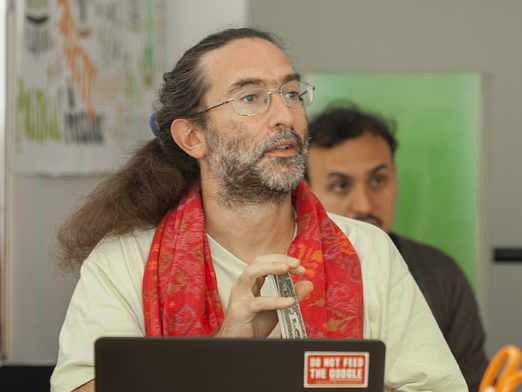The first 'Transition Pounds' in the UK, Totnes, Brixton, Stroud, Lewes, and then Bristol lacked proper theoretical foundations, and achieved very limited circulation. Even today, on its fourth issue, the Totnes pound is extremely sluggish. Even with discounts, pound-backed (proxy-pound) models in which national money is captured for the local economy lack incentives for those local pounds to circulate. These projects no longer promise economic development, but instead acknowledge that local notes act as a 'nudge' in people's wallets to encourage them to spend locally, where they otherwise might not have; thus their economic ambitions have been very limited. The rhetoric these days is more accurate, focusing on building local supply chains & local identity, but the hope of economic impact through better models still burns brightly in the hearts of the projects' founders.
From the outset Bristol Pound's breadth of preparation, and building relationships with local traders set them ahead of the pack. Bristol Pound is a growing charity, employing around 10 staff, and is amplifying its impact through the new Guild of Independent Currencies, whose second meeting I attended this week.
They have invited, through the transition network, existing and pending town currency projects - Southampton, Liverpool, Plymouth, Birmingham, Brixton and others were represented. Interestingly LETS and Time banks do not participate, perhaps because they view themselves as social, not economic initiatives. The meetings, the first of which was last year, focus on knowledge sharing to help fast track new projects into operation. That means sharing on subjects like, funding, software, communication, community engagement & legal issues. Sharing on software is particularly important. Software can be difficult, and expensive but is essential. Bristol has put a lot of resources into maintaining and developing its software in partnership with Qoin and the EU funded CCIA partnership, and any project with a similar model is invited and advised to share that wealth! One hope is that all the Town Pounds can be interoperable through the software, to support supply chains across the country.
I have been vocal in my disapproval of these proxy pound projects, because they only trap existing money, rather that what I think is important, which is creating new money/credit ourselves. And yet this post is to acknowledge the value being created in this space - it certainly not monetary reform, but it is building awareness of the importance of localising supply chains, which is a prerequisite for circulating new local money. Mutual credit initiatives are just not catching on but proxy pounds could be the start of driving a slow wedge between scarce expensive legal tender and free sufficient local credit/money!
In fact the leaders of Bristol and Brixton both wanted from the start to do mutual credit, which utilises the power of credit creation, but both opted for backed money first, because traders told them they needed the option of cashing out. But Bristol is about to launch a new model, in parallel with its existing pound, called 'Prospects', which will be an interesting variation on mutual credit in which loans can be optionally repaid with Sterling. Rock and Roll!
So I'm reporting that there is lots of good energy here and the progress is agonisingly slow yet sure. I would encourage these projects to teach their stakeholders about money itself, not only to make the case for issuing new money/credit, but also to build a sense of community through the shared learning.

Comments